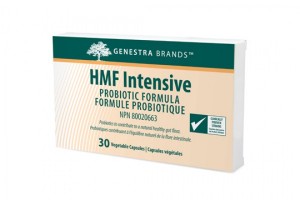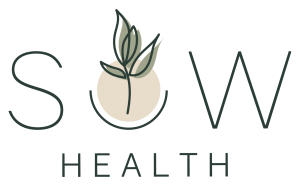Did you know that you are only 10% human? There is actually 10 times the amount of microbial cells in your digestive tract than cells in your entire body. So, 90% of you is bacteria!
Sometimes referred to as a “newly discovered organ”, the bacteria in your intestines weighs about 1.5-2kg, which if collected together would be approximately the same weight as your liver. These bacteria take up residence from the day we are born (or earlier), and remain with us all our lives. They are essential to overall health.
So, now that I have your attention, let’s go over some key terms and definitions related to bacteria and human health.
1) Microbiota (formerly known as flora): the collection of microorganisms that reside in a previously established environment. For us, this means we have microbiota in and on our skin, lungs, digestive tract, urinary & vaginal tracks. The term “flora” has been used as a term for microbiota, but it relates to plant life instead of live microorganisms, so is technically incorrect. Each of us has an individual collection of species of bacteria (there are at least 1000 species known) so your microbiota is like an internal fingerprint (since the majority live in your gut). Similarly, the term microbiome is used interchangeably with microbiota, but refers to the combined genetic material of microorganisms in a particular environment (this “second genome” actually makes up 99% of our genetic information).
2) Probiotics: Live microorganisms which, when administered in adequate amounts, give health benefit to the host. Probiotics are simply live food or supplements you take to support your microbiota.
So, what do these little guys do for us? Bacteria are our friends. They’re actually more than that, they are friends with benefits! Our microbiota performs many physiological functions and directly impacts our health in the following ways:
- It helps us digest our foods properly so that we can comfortably absorb our nutrients. It ensures proper digestive function and even assists in the production of some vitamins (B and K).
- It acts as a barrier to infectious microorganisms and also combats pathogenic toxins (like those from Clostridium difficile).
- It balances and drives correct development of the immune system, influencing the formation of white blood cells & cytokines in the gut to prevent allergies and autoimmunity.
The development of gut microbiota starts at birth. As the newborn baby enters the world, it is quickly colonized by the microorganisms from the mother and external environment. Vaginal vs. C-section birth will influence a baby’s microbiota development (more on this in another post). From the third day of life, the composition of intestinal microbiota is directly related to how the infant is fed. Breastfed babies colonize different bacteria than those who are formula fed.
As we age, our microbiota is constantly in flux and is reduced or becomes imbalanced (a term called dysbiosis) by a variety of factors, such as:
- Antibiotic or medication use
- Lifestyle and poor diet (specifically a diet high in sugar and simple carbohydrates)
- Stress (which hormonally can influence the type of bacteria in your gut)
- Digestive disorders
- Infection or illness
- Travelling
Since these factors relate to all of us daily, it is imperative to introduce probiotics to maintain health. This can be done in the form of fermented foods or supplements. Probiotics are naturally occurring in fermented foods such as yogurt, miso, kimchi, sauerkraut, and kefir. If you’re looking just to maintain your health, including fermented foods in your diet daily may be all that you need. However, if you’re looking to improve or therapeutically treat a condition, I would suggest consulting a Naturopathic Doctor and supplementing with a good quality probiotic. A good quality probiotic will:
- Be potent. Look for colony forming units on the bottle, or CFUs. For therapeutic probiotics, I generally recommend a minimum of 10 billion CFUs and increase the dose depending on the condition being treated.
- Be scientifically proven to work. There are many probiotics on the market so it’s important to use strains that have been studied. Strains used in the probiotics are important for therapeutic use and are studied continually. Supplements have unique strains for certain conditions or uses. Brand does matter and affects quality of the product. Brands I recommend to my patients include: Genestra, Metagenics & NFH.
- Be human. Human strains of probiotics will naturally adhere to your digestive tract more readily than animal strains. They also tend to survive stomach acid better.
- Be free of allergens. Many people are sensitive to dairy and, therefore, yogurt wouldn’t work for them. High quality supplements are a great way to take your probiotics without dairy.
So, in my opinion, daily probiotic supplementation can be a component of a healthy diet throughout your lifetime. If you’re not quite convinced, here is a list of clinical conditions that probiotics are most indicated for:
- Digestive complaints: diarrhea, gas, bloating, constipation
- Food sensitivities (LINK food sensitivity blog)
- Antibiotic use
- Atopy: eczema, allergies, asthma
- Any infection: colds & flus (treatment and prevention – LINK BLOG treating colds and flus naturally), urinary tract infections, digestive infections, ets
- Dysbiosis and candida (yeast infections)
- IBS, Crohn’s and Ulcerative colitis
- There is also growing evidence in probiotics supporting healthy mood and weight management
This was an overview blog on the wonders of bugs. Don’t be afraid – we need them to live! Please let me know if you have any questions. Also, please consult a Naturopathic Doctor for treatment as we are experts in probiotics and optimizing your microbiota.
Yours in health,
Sarah Oulahen HBHSC, ND
Naturopathic Doctor at Sow Health



